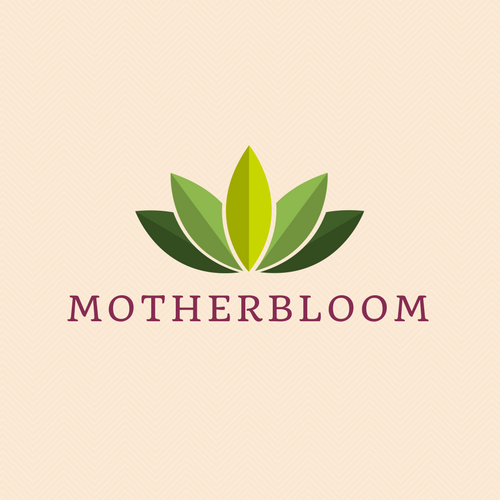“Mom Brain” or ADHD?
It’s no secret that Motherhood comes with a fair share of challenges, like sleepless nights, endless responsibilities, and the insidious "mom brain." But what if that foggy mental state so many moms experience isn't just a hazard of parenting? What if it's actually something more – something that can get better if it was just better understood (and supported)?
In this piece, I’ll dive into the similarities, differences, and the often blurry line between "mom brain" and ADHD. I’ll share a few tips too, in case you think you may be like one of the many moms I know who are affected by more than just a little brain fog.
The Myth of “Mom Brain” –
"Mom brain" has become a colloquial term, often used to describe the forgetfulness, scattered thoughts, and mental fog that mothers commonly experience. From leaving keys in the refrigerator to forgetting important appointments, these moments are often brushed off as a natural consequence of the extreme sleep deprivation and unrealistic multitasking that come with parenting.
While some degree of cognitive decline, especially in the short term, is common among new mothers due to hormonal changes and lack of sleep, it's so very important to recognize when these symptoms may be indicative of something more complex.
Could it Really Be ADHD?
ADHD is a neurodevelopmental disorder characterized by persistent patterns of inattention, hyperactivity, and impulsivity – any of which can significantly impact daily functioning. While it's often most associated with children, ADHD doesn't magically disappear in adulthood, and in many adults (especially women), it may go undiagnosed for years.
ADHD is stereotypically associated with hyperactive young boys, which means physicians, educators, or others may be biased and less likely to consider ADHD as a root cause of problems in women. The female symptoms of ADHD are also often less noticeable, presenting more as inattentiveness and internal restlessness, vs. hyperactivity; therefore, ADHD may not be considered as the source of the problem when moms are having real but harder to detect challenges in their executive functioning.
Moreover, in the face of social expectations and gender norms, women with ADHD have often learned highly effective coping mechanisms to mask their struggles and navigate the challenges posed by their symptoms. This ability to mask symptoms creates a misconception that females with ADHD do not experience significant impairment – but the reality is that you’re just working harder to compensate for the difficulties with attention and organization, and probably emotionally suffering all the more for it.
Mom Brain and ADHD Are Difficult to Tease Apart –
Pregnancy and childbirth bring about a rollercoaster of hormonal changes. The surge in estrogen and progesterone during pregnancy, followed by a sharp decline after childbirth, can easily impact cognitive functions. This is all a normal part of the maternal journey, but it also can contribute to cognitive lapses that are more significant.
Both “mom brain” and ADHD in women are characterized by forgetfulness, difficulty concentrating, and a sense of being overwhelmed. And because the demands of parenthood, coupled with hormonal fluctuations, can create a perfect storm for the emergence of ADHD symptoms or exacerbate existing ones – even women who had no prior history of attention difficulties, could actually be experiencing something more clinically significant in the postpartum period and beyond.
What to Do If You Think You May Have ADHD as a Mom –
Because distinguishing between "mom brain" and ADHD can be very challenging due to the overlap in symptoms and the varying experiences of individuals, it’s so important to seek out more information and reflect on how your challenges are affecting your life.
Consider the duration and persistence of your symptoms, and also whether the symptoms include persistent difficulties with attention, impulsivity, internal restlessness and/or hyperactivity. Also consider how the symptoms impact your daily functioning – do they have pervasive effects on multiple aspects of your life, including work, relationships, or personal organization? To help with this process, I often refer the moms I support to this site, where you’ll find a number of self-assessment tools, helpful blog articles, and practical ways to improve executive function – www.additudemag.com.
If you are finding it difficult to determine the cause or cope with your cognitive challenges, seek out a professional evaluation for more support. A healthcare provider, psychologist, or psychiatrist with experience in ADHD can conduct assessments and provide insights into whether your symptoms align with ADHD or if there are other contributing factors.
Also therapy for moms with “mom brain” or ADHD can be tremendously helpful. I support moms weekly with identifying and practicing more effective coping strategies, which can ultimately improve self-confidence and mood too!
Conclusion –
In the already complicated and demanding journey of motherhood, differentiating between "mom brain" and ADHD can feel like just one more impossibility at times. While some cognitive lapses are a normal part of parenting, it's so important to recognize when these symptoms may actually indicate something more clinically complex. Seeking professional help and understanding the role of hormones, stress, and the greater context of your current life transition are vital steps to supporting your well-being and adjustment as a mom.
If you too are a mom struggling to cope with “Mom Brain” or something more significant, reach out to me! I love to help mothers take a closer look at your challenges and develop a plan with unique strategies that not only improve your functioning, but also help you start to enjoy life and motherhood more.
Keely Clark is a Licensed Clinical Social Worker (LCSW) and certified Perinatal Mental Health Specialist (PMH-C) located in Asheville, North Carolina. She has over 15 years of professional mental health experience and specializes in supporting mothers in the adjustment to parenthood, healing from relational trauma, and learning to love your life and motherhood more. Keely provides online mental health therapy to residents of NC, SC and FL, and relational coaching and motherhood support to all women and mothers.
